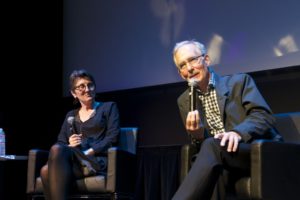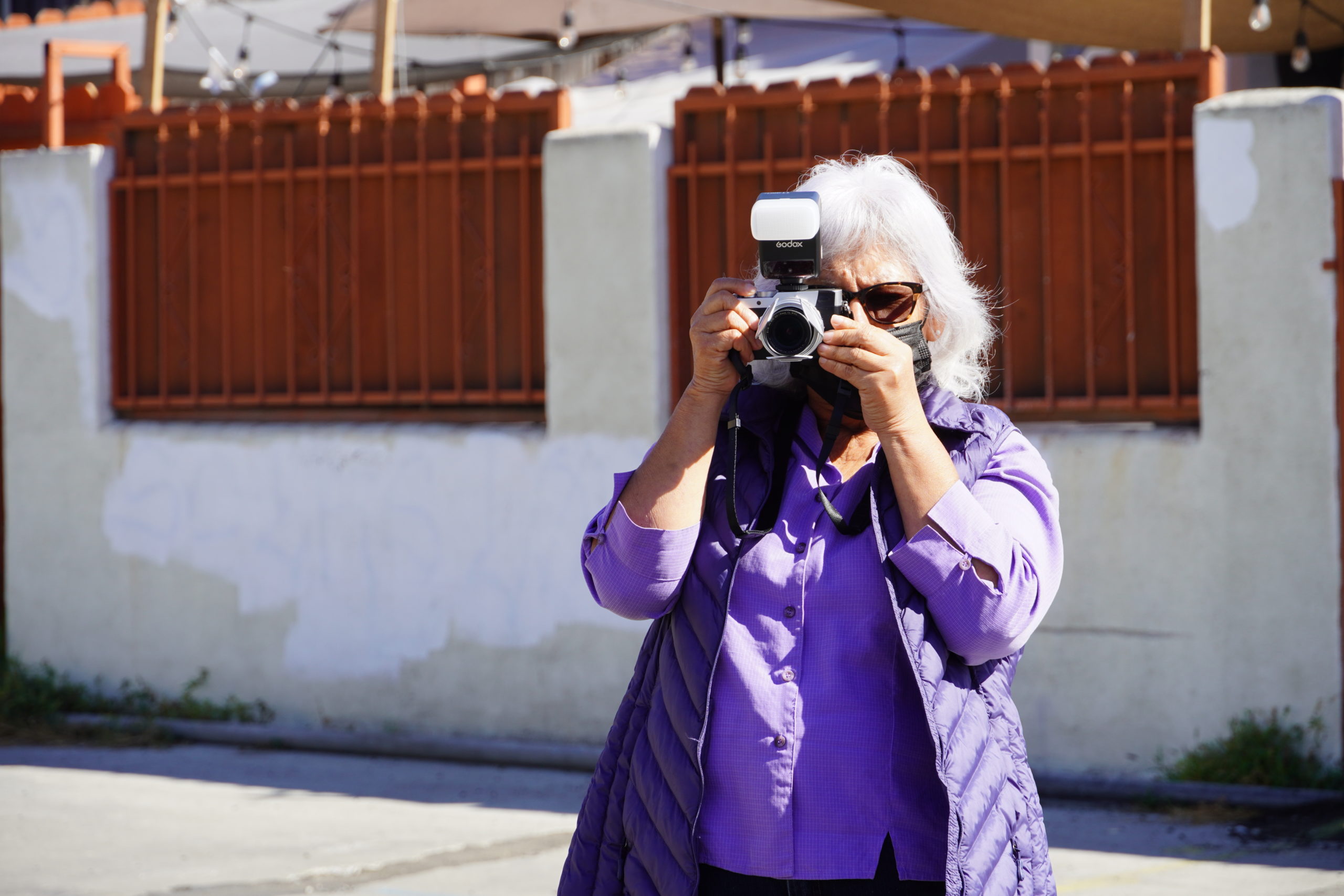How Nancy Newhall helped define photography as a fine art
Above: MOPA installation shot of Moment in Time: A Collection of Photographs | Works from the Bank of America Collection. Images comprising the exhibition are from an art collection that began in 1967 by Beaumont and Nancy Newhall. Image courtesy of Stacy Keck.
Nancy Newhall played a major role in legitimizing photography as a fine art. A founding member of Aperture magazine, and an important contributor to the publication, Newhall wrote extensively about the evolving role of photography, and was visionary in her thinking about the then “new medium” of television.
Get the first comprehensive survey of Nancy Newhall now
As she wrote in her essay “The Caption,” from the first issue of Aperture in 1952, “… the old literacy of words is dying and a new literacy of images is being born.” Newhall goes on to speculate, “Perhaps the printed page will disappear and even our records will be kept in images and sounds.” One of the first to write about visual literacy — the importance of reading images and the ability of text to change the meaning of images — she was decades ahead of her time.
Nancy Newhall worked closely with her husband Beaumont Newhall and with many of the well-known photographers of her day including, Ansel Adams, Edward and Brett Weston, Paul Strand, Henri Cartier-Brassai, and Minor White. A strong and independent individual, Newhall helped define photography as a fine art in America during the first half of the twentieth century.
More than thirty years after her tragic death in 1974, Newhall’s legacy still shapes and informs the field of photography and lens-based imagery.
More about Nancy Newhall
Born in 1908 in Swampscott, Massachusetts, Nancy Wynne Parker showed an early interest in the arts. She began writing poetry at age seven and had one of her poems published in the youth magazine, St. Nicolas by age twelve.
In 1930, following her graduation from Smith College, Nancy moved to New York City to study painting and engraving at the Art Students League. In 1933, her first solo exhibition of painting and wood engravings at a Boston gallery was a critical success.
Having first met in 1932, Beaumont Newhall and Nancy Wynne Parker forged a lifelong partnership of love and respect that covered both their personal and professional lives. In 1935, Beaumont gave Nancy her first camera, a Kodak Bantam. As Beaumont wrote, “Almost at once she showed a highly individual style. Her portraits were bold, her landscapes lyrical, her architectural subjects detailed and foursquare.”
Married on July, 1, 1937, their honeymoon, a trip to Europe researching photographs for an upcoming exhibition at MoMA, was evidence of Nancy’s often quoted statement, “When I married Beaumont, I married photography.”
Get the first comprehensive survey of Nancy Newhall now
Press Inquiries
Press Coordinator

